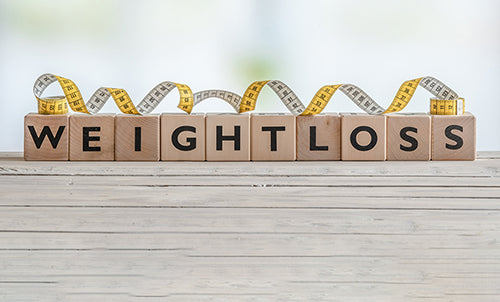At some point in your weight loss journey — usually, the beginning — you may wonder about how much weight loss you’ll be able to actually achieve in a week or a month. Then, you may make an estimation and put a suitable fitness plan in motion. But, instead of how much weight you can lose, you must focus on how much weight you should lose.
When you are specifically assessing your weekly weight loss goals, keep in mind that the plan you use must be safe and lead to consistent results — which can maximize the likelihood of successful weight loss and maintenance in the long run.
Weekly Weight Loss Goals
Most medical and nutritional experts agree that the weekly weight loss goal should be one to two pounds because it indicates that you’re losing actual fat and not just water.
If your weekly weight loss exceeds the recommended one to two pounds, you may be misled to believe you’re doing well, when in fact you may be only losing water weight.
In general, the loss of water weight slows down with time as you keep up with your fitness plan. At this point, you may note your weight loss slowing down. Even though this weight loss might reflect actual fat loss, you may lose hope and regress into old sedentary habits.
Water Weight vs. Fat Loss
Exceeding two pounds of weight loss a week likely means you are losing water weight. Unhealthy dieting habits rely on restricting your carbohydrates for rapid water weight loss. This leads to poor nutrition and dehydration, both of which cause inability to concentrate, irritability, and energy deficit.
Losing body fat takes time, effort, and healthy nutritional choices. Rather than focusing on carbohydrate deprivation, fat loss requires calorie control — consuming fewer calories than you are burning throughout the day.
Consistent Weight Loss vs. Crash Dieting
Consistent weight loss is safer and longer-lasting than crash dieting because
- with time, it shows how successful your diet and exercise choices are
- it causes smaller and slower changes, which don’t shock your system and stay more sustainable in the long run
- it may lead to definite ongoing weekly weight loss in the future
Crash dieting is often regarded as an unhealthy method of weight loss because it usually involves significant calorie deprivation and highly intense exercise regimens.

Because of the extreme diet as well as exercise, supervision from a licensed medical expert or nutritional expert is strongly encouraged. Improper crash dieting can lead to health risks — which are more detrimental than those of consistent weekly weight loss.
Even though it may seem at times like you have plateaued or are not reaching your goals quickly enough, remember — “Nothing worth having is easy.”
Your diet and exercise decisions should be tailored to help you lose weight not only safely but also consistently. We can all agree that a weight loss plan that ultimately results in gaining the weight back is not much of a plan in the first place.







